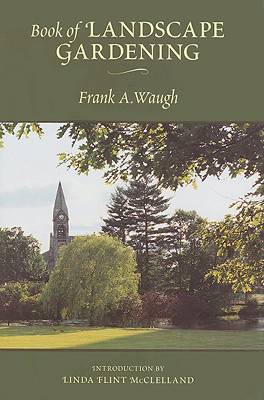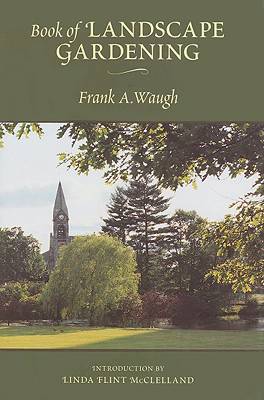
En raison d'une grêve chez bpost, votre commande pourrait être retardée. Vous avez besoin d’un livre rapidement ? Nos magasins vous accueillent à bras ouverts !
- Retrait gratuit dans votre magasin Club
- 7.000.000 titres dans notre catalogue
- Payer en toute sécurité
- Toujours un magasin près de chez vous
En raison de la grêve chez bpost, votre commande pourrait être retardée. Vous avez besoin d’un livre rapidement ? Nos magasins vous accueillent à bras ouverts !
- Retrait gratuit dans votre magasin Club
- 7.000.0000 titres dans notre catalogue
- Payer en toute sécurité
- Toujours un magasin près de chez vous
46,45 €
+ 92 points
Description
In 1903, Frank Albert Waugh (1869-1943) founded an undergraduate program in "landscape gardening" at Massachusetts Agricultural College, only the second such program in the nation. The profession he helped to pioneer is now known as landscape architecture, and the college has become the University of Massachusetts Amherst. Waugh, who had moved to New England in 1895 from his native Midwest, was one of the first practitioners to conceive of a history of American landscape architecture. He was a renowned teacher and horticulturalist as well as a prolific writer on topics ranging from design to pomology, a talented printmaker, photographer, and flutist. While Waugh's writings remained rooted in the principles of naturalistic nineteenth-century landscape gardening, his theories promoted modern applications. The most comprehensive of Waugh's several published books, and widely considered a classic in the field, Book of Landscape Gardening was first published in 1899 and revised several times. "Landscape gardening is eminently a fine art," Waugh began each edition of the popular text that became a standard in professional practice. In the chapters that follow, he covers several general principles of design and discusses three basic styles--the natural, the architectural, and the picturesque. The book achieved its broad appeal by striking a balance between well-known period examples and solutions that could be achieved by the professional designer, highway engineer, estate gardener, or average homeowner. Photographs, many of them taken by Waugh, depict far-ranging landscapes from Europe and Japan to diverse regions of the United States. Several plant lists and an annotated bibliography of landscape design sources accompany the text. In this edition, a new introduction by historian Linda Flint McClelland examines Waugh's contributions to landscape architecture during a period of great technological change, growing cultural sophistication, and economic prosperity. Published in association with Library of American Landscape History: http: //lalh.org/
Spécifications
Parties prenantes
- Auteur(s) :
- Editeur:
Contenu
- Nombre de pages :
- 236
- Langue:
- Anglais
- Collection :
Caractéristiques
- EAN:
- 9781558495210
- Date de parution :
- 01-02-07
- Format:
- Livre relié
- Format numérique:
- Genaaid
- Dimensions :
- 151 mm x 209 mm
- Poids :
- 557 g

Les avis
Nous publions uniquement les avis qui respectent les conditions requises. Consultez nos conditions pour les avis.






